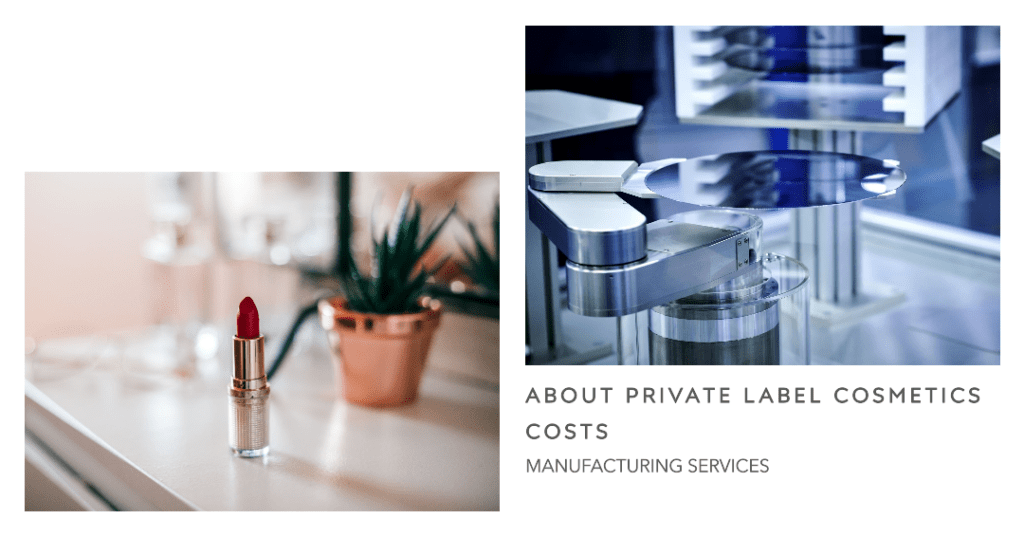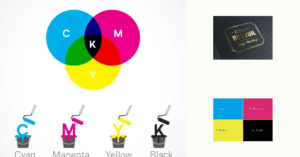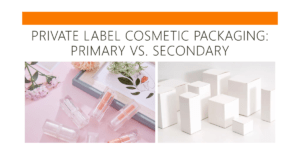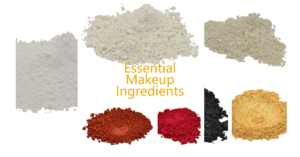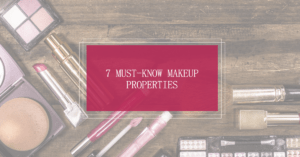Are you curious about involved in private label cosmetics manufacturing costs? Have you ever wondered how much it really costs to start your own cosmetics brand? Prepare to uncover the secrets behind the price tag of your dream business.
Key Takeaways:
- Private label cosmetics offer a cost-effective solution for starting a cosmetics brand with reduced upfront costs.
- The cost of private label cosmetics can vary based on factors such as the vendor you work with, formulation complexity, manufacturing processes, packaging materials, and marketing costs.
- Setting the right price for private label cosmetics is crucial for profitability and involves considering various factors such as distribution channels and marketing expenses.
- Minimum order quantities and product costs are important considerations, as they impact the overall expenses of private label cosmetics manufacturing.
- Sampling and the production process play a significant role in refining and launching private label products.
Benefits of Private Label Cosmetics
Private labeling in the cosmetics industry comes with a multitude of benefits. By opting for private label cosmetics, businesses can enjoy:
- Reduced upfront costs
- Leveraging the experience and expertise of the vendor
- Quicker time to market
- Differentiation from competitors
- Easy entry into the market with branded products
- Higher profit margins due to low production costs
Private label cosmetics offer a cost-effective solution for entrepreneurs looking to establish their cosmetics brand. The reduced upfront costs allow businesses to allocate resources to other crucial aspects such as branding and marketing, ultimately resulting in a competitive edge in the market.
“Private labeling provides an opportunity for businesses to enter the market with their own branded products, adding value to their offerings and attracting customers seeking unique cosmetic options.”
By working with experienced vendors in private label cosmetics, businesses can tap into their knowledge and expertise, ensuring high-quality products that meet industry standards. The vendor’s established infrastructure and supply chain streamline production processes, enabling a quicker time to market and faster product availability.
In a saturated cosmetics market, differentiation is key to capturing consumer attention. Private label cosmetics allow brands to bring unique products to market, catering to specific target audiences and addressing their needs with innovative formulations and packaging designs.
Furthermore, private label cosmetics enable businesses to establish their brand identity and reputation, fostering customer loyalty and trust. With the ability to customize products according to their preferences and specifications, brands can deliver a personalized experience, setting themselves apart from mass-produced options.
Low production costs associated with private label cosmetics translate into higher profit margins for businesses. The economies of scale achieved through shared manufacturing and production costs, as well as efficient packaging and design, contribute to the overall cost-effectiveness, allowing brands to maximize their profitability.
Overall, private label cosmetics offer a range of benefits that make them an attractive option for aspiring cosmetics entrepreneurs. From reduced upfront costs to differentiation and higher profit margins, private label cosmetics empower brands to establish their presence in the market and succeed in the competitive cosmetics industry. you may be interested in learning more about The Ultimate Guide To Benefits of Private Label Cosmetics.
Factors Affecting Private Label Cosmetics Manufacturing Costs
The cost of private label cosmetics can vary significantly based on a range of factors. From the vendor you choose to work with to the complexity of formulation and product development, several elements influence the overall cost of private label cosmetics.
Let’s explore the key factors about Private Label Cosmetics Manufacturing Costs:
- The Vendor: The choice of vendor can have a significant impact on the cost. Different vendors may offer varying price structures, manufacturing capabilities, and levels of quality control.
- Formulation and Product Development Complexity: The complexity of developing the desired formulation and product plays a role in the overall cost. More intricate formulations may require additional testing and development, increasing the production cost.
- Manufacturing Processes and Minimum Order Requirements: The manufacturing processes employed and the minimum order requirements set by the vendor can affect the cost. Complex processes or higher minimum order quantities may result in higher production costs.
- Quality of Ingredients Used: The quality of ingredients used in the private label cosmetics can impact both the cost and the final product quality. High-quality ingredients often come at a higher price point.
- Packaging Materials and Design: The choice of packaging materials and design elements can influence the cost. Premium packaging materials or intricate designs may incur additional expenses.
- Specifications and Claims: Specific product specifications and claims, such as organic or hypoallergenic formulations, may increase the cost due to the need for specialized ingredients or additional testing.
- Additional Services: Certain additional services, like customized labeling or packaging, may incur additional charges.
- Testing and Compliance with Regulations: Compliance with regulatory standards and required testing can contribute to the overall cost. Testing for safety and performance is essential and may require additional resources.
- Branding and Marketing Costs: Developing a strong brand identity and marketing strategy also factor into the cost. Branding and marketing efforts are crucial for successfully launching private label cosmetics.
By carefully considering these cost factors, you can better understand and plan for the expenses associated with private label cosmetics manufacturing.
Image:
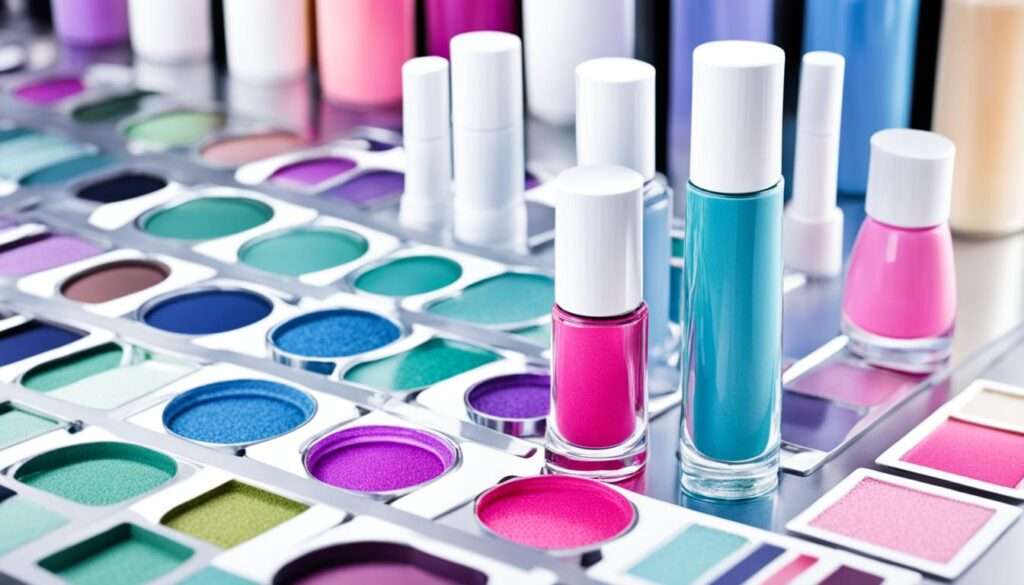
Private Label Cosmetics vs. Manufacturing from Scratch
When it comes to producing cosmetic products, businesses have two primary options: private label cosmetics or manufacturing from scratch. While each approach has its merits, private label cosmetics offer distinct advantages in terms of cost-effectiveness and efficiency.
Private labeling eliminates the need for extensive investment in research and development, testing, manufacturing, and formulation. Instead, brands can rely on the expertise and resources of a private label vendor to produce high-quality products that align with their specifications.
By leveraging shared manufacturing and production costs, brands can significantly reduce their upfront investment. This collaborative approach also allows for economies of scale, further contributing to cost savings. With private label cosmetics, businesses can focus their efforts on branding and marketing, maximizing their chances of success in a competitive market.
The efficiency of private label cosmetics extends beyond cost considerations. From packaging and design to quality control and compliance, private label vendors streamline the entire production process. Brands can benefit from the vendor’s established supply chain and expertise, resulting in faster time-to-market and a quicker return on investment.
Overall, private label cosmetics have emerged as the preferred choice for many entrepreneurs looking to enter the cosmetics industry. It offers a cost-effective and efficient solution that enables brands to establish their presence without the burden of extensive product development and manufacturing costs.
“Private label cosmetics combine affordability, convenience, and quality – ultimately offering businesses a competitive edge in the market.” – fragrance sales manager, Anna Johnson
| Private Label Cosmetics | Manufacturing from Scratch |
|---|---|
| Lower upfront costs | Higher upfront costs |
| Leverage vendor expertise | Requires in-house expertise |
| Time-efficient production process | Time-consuming production process |
| Shared manufacturing costs | Individual manufacturing costs |
| Efficient packaging and design | Custom packaging and design |
Setting the Right Price for Private Label Cosmetics
Setting the right price for private label cosmetics is crucial for profitability. To determine an optimal pricing strategy, it’s important to consider various factors such as the cost of goods, future reorder plans, distribution channels, and additional costs like marketing.
Pricing Formula and Considerations
A common rule of thumb is to price private label cosmetics at 8 times the cost of goods. However, it’s important to note that this formula can vary based on the specific product and market conditions. By setting a price that adequately covers production costs while remaining competitive, brands can maximize their profit margins.
Planning for future reorders is another key aspect of pricing strategy. Brands should consider the potential volume of future sales and adjust pricing accordingly to ensure profitability over the long term.
Distribution Channels
The choice of distribution channels can also impact pricing. Brands selling through e-tailers may have different pricing strategies compared to those selling through brick and mortar stores. Online platforms often involve additional costs such as platform fees and shipping, which need to be factored into the pricing strategy.
Marketing and Other Costs
Marketing costs play a crucial role in determining the overall pricing strategy. Brands should consider expenses related to website development, social media management, content marketing, email marketing, and influencer marketing. Allocating a portion of revenue, typically 7-10%, for marketing activities can help drive brand awareness and increase sales.
Other costs such as packaging, labeling, and product testing should also be taken into account when determining the pricing strategy. It’s essential to balance these costs with the desired profit margins and market competitiveness.
Overall, finding the right price for private label cosmetics requires careful consideration of factors like production costs, future reorder plans, distribution channels, and marketing expenses. By analyzing these variables and staying aware of market trends, brands can set competitive prices that drive profitability and growth.
Minimum Order Quantities and Product Costs
When considering private label cosmetics manufacturing, it’s important to understand the minimum order quantities and product costs involved. Minimum order quantities refer to the lowest number of units that manufacturers are willing to produce. These quantities can vary depending on the vendor and specific product.
The product costs for private label cosmetics also play a significant role in the overall expenses. Depending on the type of production chosen, product costs can range from €500 to €1,500. It’s important to note that these costs may vary based on factors such as the complexity of the formulation, packaging materials, and design.
In addition to the base product costs, there are other expenses to consider. Shipping costs, barcode expenses, and design considerations such as logo design, packaging, and labeling can all contribute to the final product costs.
Minimum Order Quantities and Product Costs
| Product | Minimum Order Quantity | Product Cost Range (€) |
|---|---|---|
| Lipstick | 1,000 units | $700 – $1,200 |
| Eyeshadow Palette | 500 units | $800 – $1,500 |
| Mascara | 2,000 units | $500 – $900 |
The table above provides a general overview of minimum order quantities and product costs for three common cosmetic products. It’s important to note that these numbers and costs are approximate and may vary depending on the specific vendor and product requirements.
When planning your private label cosmetics business, be sure to factor in both the minimum order quantities and the associated product costs. These figures will influence your overall budget and financial projections.
By understanding the minimum order quantities and product costs, you can make informed decisions and effectively manage your expenses when starting a private label cosmetics brand.
Sampling and Production Process
Samples play a crucial role in the private label cosmetics manufacturing process, serving as one of the final steps before launching a product to the market. The sampling process allows brands to test and evaluate the quality, appearance, and performance of their private label products.
When requesting samples, manufacturers typically require a detailed description of the desired product, including formulation, color, packaging, and any specific features or claims. Depending on the manufacturer, samples may be provided either free of charge or at a cost.
Transparent and effective communication between the brand and the manufacturer is essential during the sample evaluation phase. Brands should provide specific feedback regarding the sample’s attributes, such as scent, texture, color accuracy, and packaging. This feedback helps manufacturers refine the product until it aligns perfectly with the brand’s expectations.
The sampling process allows brands to make any necessary adjustments or improvements to the product before proceeding with full-scale production. It enables them to ensure that their private label cosmetics meet the desired quality standards and effectively cater to their target market.

Sample Evaluation Checklist
To ensure a comprehensive evaluation of private label samples, consider the following factors:
- Quality of ingredients used
- Consistency and texture
- Color accuracy
- Scent
- Packaging design and functionality
- Effectiveness in delivering desired results
- Testing for allergenicity or sensitivity
By meticulously reviewing these aspects, brands can make informed decisions regarding the final product specifications. Moreover, clear and detailed communication during the sampling process enables manufacturers to address any concerns or uncertainties promptly.
Transparency and effective communication during the sampling process are key to ensuring that private label cosmetics meet the brand’s expectations and deliver the desired quality to the target market.
Marketing Costs for Private Label Brands
Marketing plays a crucial role in the success of private label brands. The level of investment in marketing can greatly impact brand visibility, customer acquisition, and overall business growth. When it comes to marketing costs, there are several factors to consider.
One of the key components of marketing costs for private label brands is website development. Creating a visually appealing and user-friendly website is essential for establishing an online presence and attracting customers. Depending on the complexity of the website design and features, the costs can vary.
Social media management is another important aspect of marketing for private label brands. Establishing a strong social media presence allows brands to engage with their target audience, build brand loyalty, and drive sales. Hiring a social media manager or outsourcing social media marketing services can incur additional costs.
Content marketing is an effective strategy for promoting private label brands. Creating high-quality content, such as blog posts, videos, and infographics, helps to educate and engage customers, ultimately driving traffic and conversions. However, content creation and distribution require resources and may involve costs such as hiring content creators or investing in content marketing platforms.
Email marketing is a cost-effective way to communicate with potential and existing customers. Building an email list, creating compelling email campaigns, and analyzing email performance are all essential steps in successful email marketing. Email marketing platforms typically charge a monthly fee based on the size of the email list.
Influencer marketing has gained significant popularity in recent years. Collaborating with relevant influencers can help private label brands reach a wider audience and build credibility. However, working with influencers often comes with a price, as they may charge a fee or require product samples as compensation.
In a competitive market, allocating a portion of revenue to marketing is a common practice for businesses. A general rule of thumb is to allocate around 7-10% of revenue to marketing efforts. However, the exact percentage may vary depending on factors such as the stage of the business, growth objectives, and target market.
It’s important to note that marketing costs should be viewed as an investment rather than an expense. A well-executed marketing strategy can generate brand awareness, drive customer engagement, and ultimately contribute to increased sales and profitability for private label brands.
Conclusion
Determining the exact cost of private label cosmetics can be challenging due to the range of available products and customization options. However, obtaining detailed quotes from different manufacturers based on product specifications is recommended. This allows you to compare prices and select a manufacturer that offers the best value for your needs.
Private label cosmetics offer a cost-effective solution for starting a cosmetics brand with reduced upfront costs. By partnering with a private label vendor, you can leverage their expertise and resources, eliminating the need for investment in research and development, testing, manufacturing, and formulation. This allows you to focus on branding and marketing while delivering high-quality products tailored to your brand’s specifications.
To ensure success in the private label cosmetics industry, it is important to carefully consider factors such as vendor reputation, formulation complexity, minimum order quantities, quality of ingredients, packaging design, and compliance with regulations. By taking these factors into account and making informed decisions, you can create a profitable cosmetics brand that meets the needs and desires of your target market.
FAQ
What factors affect the private label cosmetics manufacturing costs?
The cost of private label cosmetics can be influenced by various factors such as the vendor you work with, complexity of formulation and product development, manufacturing processes and minimum order requirements, quality of ingredients used, packaging materials and design, specifications and claims, additional services, testing and compliance with regulations, and branding and marketing costs.
What are the benefits of private label cosmetics?
Private label cosmetics offer several advantages, including reduced upfront costs, leveraging the experience and expertise of the vendor, quicker time to market, differentiation from competitors, easy entry into the market with branded products, and higher profit margins due to low production costs.
How does the cost of private label cosmetics compare to manufacturing from scratch?
Private label cosmetics are generally cheaper to produce compared to manufacturing cosmetic products from scratch. Private labeling eliminates the need for investment in research and development, testing, manufacturing, and formulation of cosmetic products. It allows brands to focus on branding and marketing while leveraging the resources and expertise of the private label vendor.
How should I set the right price for my private label cosmetics?
Setting the right price for private label cosmetics is crucial for profitability. While a common rule of thumb is to price items at 8 times the cost of goods, the pricing strategy may vary. Factors to consider include planning for future reorders, knowing the distribution channels, and considering marketing and other costs.
What are minimum order quantities and how do they affect product costs?
Minimum order quantities are the lowest number of units manufacturers are willing to produce. The product costs for private label cosmetics can range from $500 to $20000 and may vary based on the type of production chosen. Shipping costs, barcode expenses, and design considerations such as logo design, packaging, and labeling also affect product costs.
What is the sampling and production process for private label cosmetics?
Samples are one of the last steps in the process of launching private label products. Manufacturers provide samples based on a detailed description of the desired product, which may be free or come at a cost. Transparent feedback and communication with the manufacturer are important to refine the product until it matches expectations.
What are the marketing costs for private label brands?
Marketing costs for private label brands can vary based on factors such as website development, social media management, content marketing, email marketing, and influencer marketing. Allocating a portion of revenue, typically 7-10%, to marketing is a common practice for businesses.
How can I determine the exact private label cosmetics manufacturing costs?
Determining the exact cost of private label cosmetics can be challenging due to the range of available products and customization options. It is recommended to obtain detailed quotes from different manufacturers based on product specifications.
How much does the sample private label cosmetics manufacturing costs?
Sample Cost: Starting from $100 USD (includes international delivery cost). This amount can be returned to you or used as a deposit for your order once it is placed.
How Much Does It Cost To Launch Private Label Products?
Many think launching a product is always pricey, but it’s not. While custom products needing lots of changes can cost more, private label manufacturing is often a good choice. This method makes a special product just for your brand. The cost? For each product type, it’s usually between $500 and $20,000. Choosing this approach can balance quality and cost, giving your brand a unique edge.
